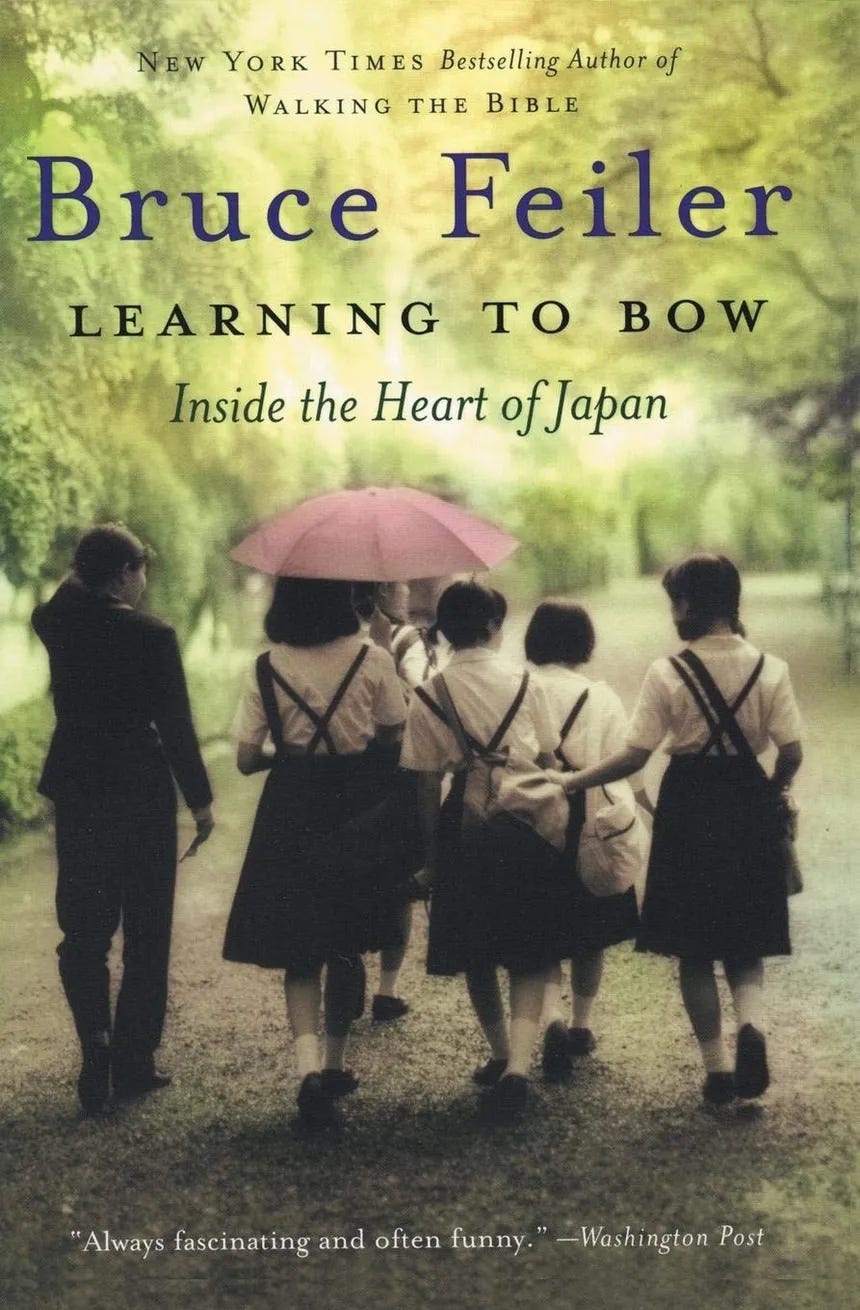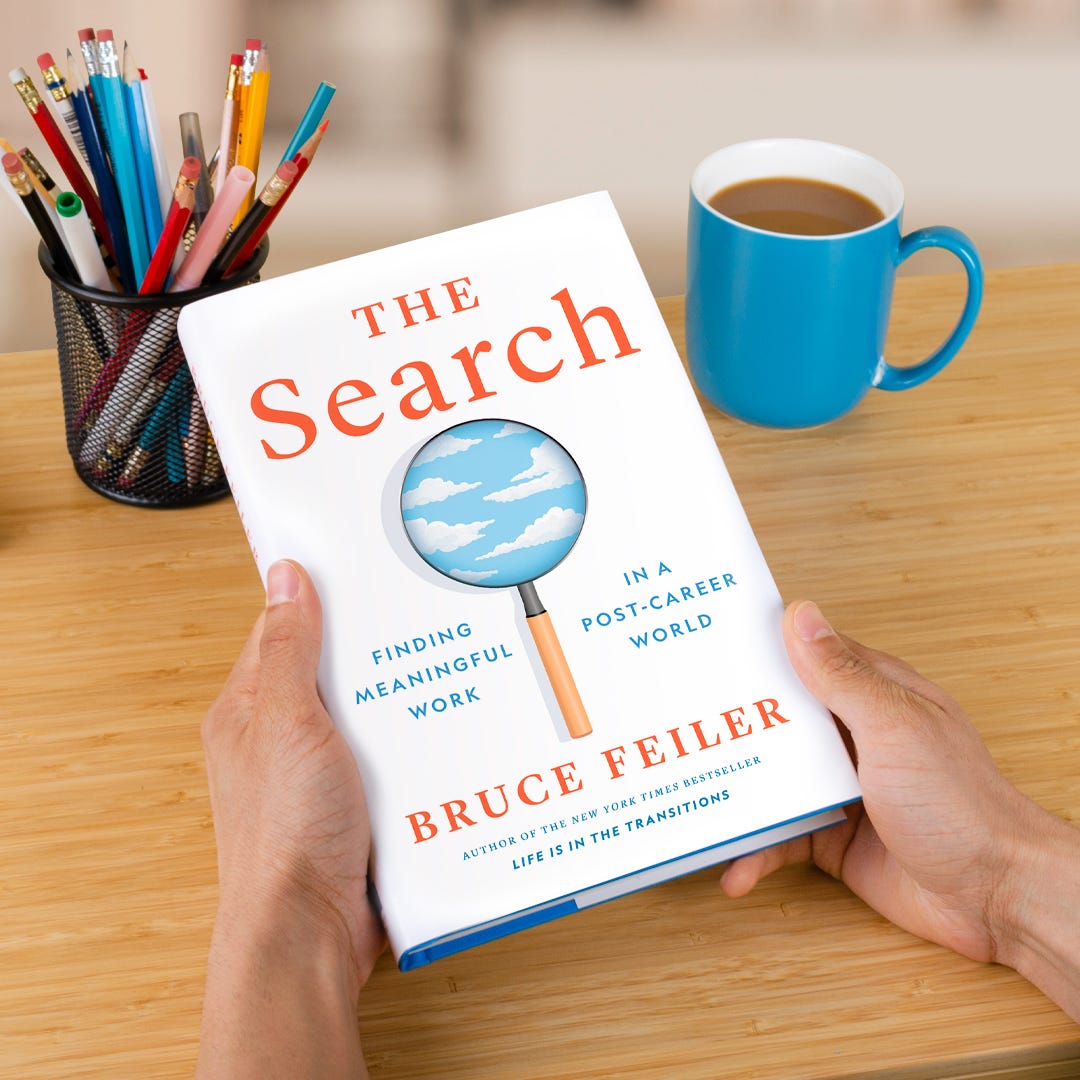Forget Independence: 3 Ways to Teach Children (and Adults) to Care More About Others
How to Practice Interdependence This Holiday Season
Thanks for reading The Nonlinear Life, a reader-supported newsletter about navigating life's ups and downs. If you're new around here, learn about me, or check out our introductory post. And if you enjoyed this article, please subscribe or share with a friend.
___
I’m not the kind of person who looks back frequently at writing I did years ago, but this week I had the occasion to pull my first book off the shelf. Learning to Bow describes the year I spent teaching junior high school in rural Japan in 1987. The book was inspired by a series of letters home I wrote on actual, airmail paper when I moved after graduating from college to the tiny town of Sano in Tochigi Prefecture – 50 miles and 50 years north of Tokyo, as I used to joke.
The reason for this sudden outburst of nostalgia was something I’ve been thinking about a lot recently in light of current events: We spend a lot of time in our culture teaching young people to be independent; we have overlooked an equally critical skill – teaching them to be interdependent. At a moment when we’re feeling disjointed, polarized, and divided, maybe a big reason we’re so fragmented is that we rarely practice the skill of coming together.
One incident that I experienced in Japan—and that I write about in Learning to Bow—has stayed with me for four decades. The occasion was the end-of-year school trip for the middle school where I was teaching. The destination was Tokyo Disneyland, not exactly the most educational of locations but nevermind: the school still used the occasion to teach interdependency. The first two articles of the 62-page (!) instruction manual read:
By working together with teachers and one another in an unfamiliar environment – let’s develop lifelong memories.
By working together within a group with good health and safety – let’s learn about public manners and have a positive experience.
And nothing was left to chance. On the day before the trip, the school set up chairs in the gymnasium in the shape of a school bus to have the students practice getting into and out of their seats in an efficient and cooperative manner. That rehearsal was followed by another in which students practiced running in and out of formation for the class photograph when they heard the sound of a whistle.
But perhaps the most telling trick occurred on the morning of departure: One of the main points of emphasis was that students had to stay in groups during their day in the park. Each group was mandated to be on time for all benchmarks during the day. But here’s the stunt that has made Japanese education so effective at promoting group cooperation: Only one student in every group was allowed to wear a watch.
Want to make students be more mindful of others? Force them to be on time but deny them the ability to have access to a timepiece unless they stick together as a team.
A generation later, the advantages of teaching children cooperative skills have become only more apparent. As Jennifer Wallace, the author of the recently published book Never Enough, wrote in The Washington Post recently, “I have found in my research that children trained in the skills of interdependence better handle setbacks or the uncertainties of the future because they are grounded in their communities. The parents of these healthy achievers openly acknowledged the courage it takes to ask for and accept support. They taught their kids to ‘never worry alone,’ as psychiatrist Edward Hallowell has put it.”
So how can we teach children (and remind their parents of) these skills without sending them to Japanese schools? Here, based on science, are three concrete ideas you can try at home this holiday season:
1. Pair Up
The simplest way to promote interdependence is to put family members in situations that, well, require interdependence. In some ways, schools in the 19th century did a better job of promoting cooperation because siloing children by age had yet to take hold. Every day, children were around peers of different ages and different skill sets which normalized group work rather than competition because there was no expectation that everyone would be at the same level.
It took schools in the West a century to return to this idea, as they began to do in the 1970s with the philosophy of “collaborative learning” that had its birth in England. The primary point: children learn more from their peers than they do from their instructors. But fifty years later, as David and Roger Johnson of the University of Minnesota have shown, cooperation still lags.
So what can you do: create situations that force your children to work alongside siblings or friends.
Don’t just assign chores; assign collective chores;
Don’t just give allowance to one child; give part of allowance to all children that they have to figure out how to share;
Don’t just have older children help out younger children; use ‘reverse mentoring’ and have younger children help out older children, too.
The bottom line: Set aside time this Thanksgiving holiday when members of your family are compelled to help out with the family gathering not just as themselves but as part of a team.
2. Listen Up
A key reason that children are not sensitive to others is that they’re never taught how to listen to others. One look at our current political discourse reveals the consequence of this oversight. Elena Vitalaki and Eleni Katsarou of University of Crete outline the essential steps in becoming a better listener.
Start with the eyes. Make the sure the listener is at the same eye-level as the speaker, with few distractions like open windows, tempting food, or colorful toys.
Turn to the mouth. Don’t force the listener to be quiet for long periods. Encourage them to request pauses or ask questions.
End with connection. Have the listener repeat back what they heard and rather than criticize or judge, find at least one thing they agree on.
As the authors write, a simple exercise where children are compelled to share with a sibling, a friend, or even an adult relative, can create the “practice of empathy.” Without practice, understanding others becomes a muscle we never flex.
3. Fess Up
In her article in The Washington Post, Jennifer Wallace makes a wonderful and rarely stated point that jumps out of the discourse among adults around politics and world affairs these days. One reason we seem to have lost the instinct toward interdependence is that we almost never state the underlying feelings that prevents us from connecting with others. Wallace’s advice: “Name what often gets in the way of building interdependent relationships: envy and the shame it elicits when we think we don’t measure up.” She continues:
Social comparison is a natural part of being human, but, left unchecked, it can leave us deeply lonely. Instead, parents can normalize this universal feeling by admitting they feel envy from time to time, too, such as when they log on to social media and see an acquaintance’s fabulous vacation or when a colleague gets the promotion they were hoping for.
Maybe one reason we fail to stress interdependence around home is that we feel in some ways that we won’t be able to hold up our end of the bargain.
And yet we must. Because like many qualities we fail to teach our children – from restraint on our devices to staying calm in a dispute – the real problem usually begins with us. Only when we overcome our own fear, envy, and shame, can we open ourselves up to those we love—not to mention those we don’t.
Today, when the need for understanding and connection around the world is greater than ever, we must confront our own hesitations and not pass them onto our children. We must once again practice the art of teamwork, of listening, and of vulnerability. It’s the only way to take the world as is and convert it into the world of can be.
☀
Thank you for reading The Nonlinear Life. This is a reader supported newsletter. You can help by ordering a copy of my new book. Click on the photo below to learn more.
Meanwhile, please help us grow the community by subscribing, sharing, and commenting below. If you'd like to do a storytelling project with a loved one similar to the one I did with my father, click here to learn more.
You might enjoy reading these posts:
New Research Confirms Your Life Flashes Before Your Eyes When You Die
Why It’s Suddenly a Good Time to Be Old
The New Rules of Success in a Post-Career World
Or, you can contact me directly.










Yeeeeessss!
Such a thoughtful piece! It's wonderful to see your take on the wildly under-discussed topic of interdependence.
When I worked as a financial planner, I had a lot of clients focused on financial independence...a movement that never totally sat right with me. When my mom got sick, I saw what interdependence looked like, and it completely shifted my priorities and thinking. Thanks again for highlighting this topic!